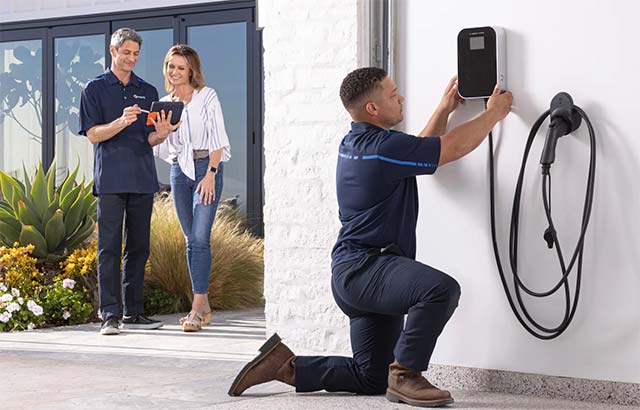
With an increase in the adoption of electric vehicles globally, charging these vehicles effectively and efficiently has become an essential aspect of the EV ownership experience.
One increasingly popular method is home charging, providing electric vehicle owners with a convenient, economical, and sustainable solution to power their cars. This article explores how home charging significantly improves the overall electric car experience.
The Convenience of Home Charging
One of the key advantages of home charging is the unprecedented convenience it brings to the life of an EV owner. Imagine waking up every morning to a fully charged car, ready for the day’s journey without making a detour to a public charging station or petrol pump. This is the luxury that home charging provides.
Solutions like charging at home make it as simple as charging a smartphone. Plug in your car when you return home from work, let it charge overnight, and your vehicle is ready for another day by morning. This flexibility eliminates the need to structure your day around the availability and location of public charging stations, thus alleviating the much-feared ‘range anxiety’ associated with EVs.
Cost-Effectiveness of Home Charging
While convenience is a substantial benefit, the cost-effectiveness of home charging further adds to its appeal. Charging at home often uses off-peak electricity tariffs, making it considerably cheaper than relying on public charging infrastructure and traditional petrol or diesel fuels. This financial efficiency turns into significant savings over time, making EVs more economical in the long term.
Moreover, government incentives and subsidies for home charging installations in various countries also reduce the initial cost, making it an increasingly attractive option for EV owners.
The Environmental Impact
Beyond convenience and cost-effectiveness, home charging also contributes significantly to the environmental benefits of owning an EV. Especially when coupled with renewable energy sources, it can minimise EV operation’s carbon footprint, making it a truly green transportation solution.
By using energy from solar panels or other renewable sources to power home charging stations, EV owners can ensure their cars are emission-free on the road and during charging. This sustainable approach contributes towards a cleaner, greener planet and aligns with the larger global goals of reducing carbon emissions.
Energy Industry
The increasing demand for home charging solutions is impacting the energy industry. It’s encouraging a shift towards more sustainable energy sources and influencing the development of smarter, more efficient power grids. People are starting to charge their EVs by not using any electricity at all but instead through solar.
Infrastructure Development
As more people adopt home charging, there’s a decrease in dependency on public charging infrastructure, which could lead to a change in urban planning and development strategies. Fewer people rely on public charging at supermarkets, shopping centres and town centres due to the fact they now have a home charging unit.
Smart Home Chargers: Enhancing User Experience
The advent of smart home chargers has further enhanced the home charging experience. These intelligent devices, controllable via smartphone applications, offer features like scheduling charge times to leverage off-peak tariffs, monitoring energy usage, and even diagnosing potential issues with the charging system.
These smart chargers add a layer of sophistication and personalisation to the home charging experience. They give owners greater control over the charging process, enabling them to optimise their energy usage and further improve the cost-effectiveness of EV operation.
Setting Up a Home Charging Station
Finally, setting up a home charging station is fairly straightforward, though it requires careful planning and consideration. You’ll need a suitable space, typically a garage or a dedicated parking spot, and access to the electrical system.
Installation should be carried out by a certified electrician to ensure safety and compliance with local regulations. Once installed, a home charging station can provide years of reliable service, further enhancing the benefits of owning an EV.
Conclusion
Home charging is significantly enhancing the electric car experience. It offers remarkable convenience, cost-effectiveness, environmental advantages, and user-friendly solutions through smart home chargers. With the ongoing advancements in EV technology, home charging is set to become an even more integral part of the electric car journey, contributing to a sustainable and efficient future of transportation.





